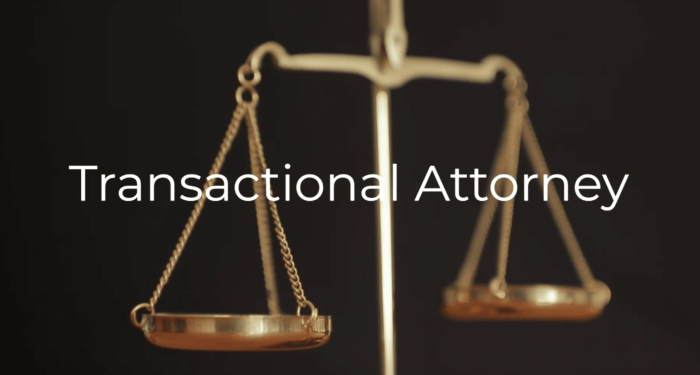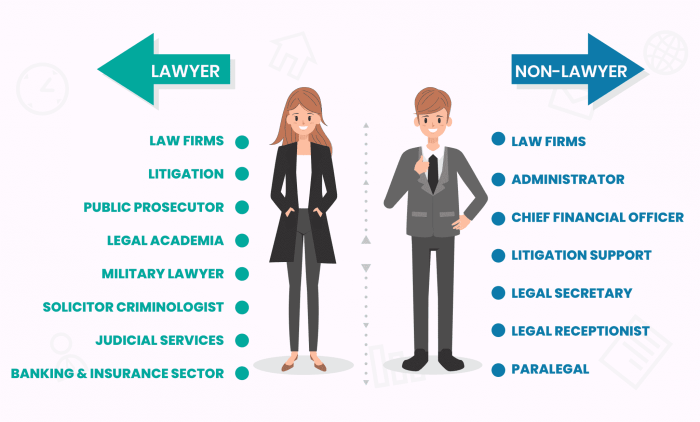
Transactional attorney jobs are a cornerstone of the legal field, encompassing a wide range of practice areas that drive business transactions and legal agreements. These attorneys play a crucial role in ensuring the smooth and compliant execution of deals, mergers, acquisitions, and other commercial endeavors.
From drafting and reviewing contracts to advising on legal compliance, transactional attorneys possess a unique blend of legal expertise and business acumen. Their skills are highly sought after in various industries, including finance, technology, healthcare, and real estate, making it a dynamic and rewarding career path.
Transactional Attorney Job Overview
Transactional attorneys play a critical role in facilitating and navigating legal complexities involved in various business transactions. They are legal professionals who specialize in advising clients on the legal aspects of business deals and ensuring that these transactions are structured and executed legally and effectively.
Industries Employing Transactional Attorneys
Transactional attorneys are employed across a wide range of industries where business transactions are commonplace. These industries often require legal expertise to ensure compliance with regulations, protect interests, and mitigate risks.
- Corporate and Finance: This sector is a major employer of transactional attorneys, who advise on mergers and acquisitions, corporate restructuring, financing, and other complex transactions.
- Real Estate: Real estate transactions require legal expertise in property ownership, contracts, financing, and regulatory compliance.
- Technology: The rapid growth of the tech sector has created a demand for transactional attorneys who specialize in intellectual property, data privacy, and technology licensing.
- Healthcare: The healthcare industry requires transactional attorneys to advise on mergers and acquisitions, joint ventures, regulatory compliance, and healthcare contracts.
- Energy: Transactional attorneys in the energy sector handle complex transactions involving oil and gas exploration, renewable energy development, and energy infrastructure projects.
Types of Transactional Law Practice Areas
Transactional law practice areas encompass a broad spectrum of legal expertise. These areas often involve specialized knowledge and skills in specific types of transactions.
- Mergers and Acquisitions (M&A): M&A attorneys advise clients on the legal aspects of acquiring or merging with other businesses.
- Private Equity: Private equity attorneys work with private equity firms on investments, acquisitions, and portfolio management.
- Venture Capital: Venture capital attorneys advise startups and emerging companies on funding, equity structuring, and intellectual property protection.
- Real Estate Development: Real estate development attorneys specialize in the legal aspects of land acquisition, construction, financing, and property management.
- Intellectual Property (IP): IP attorneys advise on patent, trademark, and copyright protection, licensing, and infringement litigation.
- Tax Law: Tax attorneys advise on tax implications of transactions, structuring deals to minimize tax liabilities, and representing clients in tax audits.
- Corporate Governance: Corporate governance attorneys advise on corporate compliance, board governance, and shareholder rights.
Essential Skills and Qualifications

Transactional attorneys need a unique blend of legal expertise and business acumen to thrive in this fast-paced and demanding field. Their ability to navigate complex legal frameworks while understanding the broader business context is crucial for successful deal-making.
Legal Skills
Transactional attorneys must possess a strong foundation in various legal areas relevant to their practice. These areas may include:
- Corporate Law: Understanding corporate structures, governance, and compliance is fundamental for transactional attorneys. They must be proficient in drafting and negotiating corporate documents, such as articles of incorporation, bylaws, and shareholder agreements.
- Mergers and Acquisitions (M&A): This area involves advising clients on mergers, acquisitions, divestitures, and other corporate restructuring transactions. Transactional attorneys need expertise in deal structuring, due diligence, and closing processes.
- Securities Law: Knowledge of securities laws and regulations is essential for transactional attorneys involved in capital markets transactions, such as initial public offerings (IPOs), private placements, and debt offerings.
- Real Estate Law: Transactional attorneys may specialize in real estate transactions, including acquisitions, sales, leases, and development projects. They must be familiar with real estate laws, zoning regulations, and environmental laws.
- Intellectual Property (IP) Law: In technology-driven transactions, understanding intellectual property rights, including patents, trademarks, and copyrights, is crucial. Transactional attorneys may advise clients on IP licensing, assignments, and enforcement.
- Tax Law: Transactional attorneys often work closely with tax professionals to ensure that transactions are structured in a tax-efficient manner. Understanding tax implications is essential for successful deal-making.
- Contract Law: Drafting, negotiating, and interpreting contracts are essential skills for transactional attorneys. They must be able to identify and address potential risks and liabilities in contracts.
Business Acumen and Negotiation Skills
Beyond legal expertise, transactional attorneys must possess strong business acumen and negotiation skills.
- Understanding Business Objectives: Transactional attorneys must understand their clients’ business objectives and goals to advise them effectively. They must be able to analyze business risks and opportunities and develop creative solutions to achieve desired outcomes.
- Negotiation and Deal Structuring: Successful transactional attorneys are skilled negotiators who can effectively advocate for their clients’ interests while finding mutually beneficial solutions. They must be able to structure deals that are both legally sound and commercially viable.
- Financial Analysis: Understanding financial statements and metrics is crucial for transactional attorneys. They must be able to analyze financial data, assess valuations, and identify potential financial risks and opportunities.
- Communication Skills: Transactional attorneys must be excellent communicators, both verbally and in writing. They must be able to clearly explain complex legal concepts to clients and other stakeholders, and they must be able to negotiate and resolve disputes effectively.
Technical Skills and Software Proficiency
In today’s digital age, transactional attorneys must be proficient in using various technical tools and software.
- Legal Research Databases: Transactional attorneys rely heavily on legal research databases, such as Westlaw and LexisNexis, to conduct legal research and stay up-to-date on legal developments.
- Document Management Software: Efficiently managing large volumes of documents is essential for transactional attorneys. They use document management software, such as Adobe Acrobat, to create, edit, and manage legal documents.
- Electronic Signature Platforms: E-signature platforms, such as DocuSign and HelloSign, are widely used in transactional law to facilitate remote signing of documents.
- Project Management Tools: Transactional attorneys often manage complex projects with multiple stakeholders. Project management tools, such as Asana and Trello, can help them track progress, deadlines, and tasks.
- Virtual Meeting Platforms: Virtual meeting platforms, such as Zoom and Microsoft Teams, are essential for remote communication and collaboration with clients and colleagues.
Typical Transactional Attorney Tasks

Transactional attorneys play a crucial role in facilitating various business transactions, ensuring legal compliance and mitigating risks. Their responsibilities encompass a wide range of tasks, from drafting and negotiating contracts to advising clients on complex legal matters.
Contract Drafting and Review
Contract drafting and review are fundamental aspects of transactional law practice. Transactional attorneys are responsible for creating, reviewing, and negotiating contracts that define the terms of agreements between parties.
- Drafting Contracts: Transactional attorneys meticulously draft contracts that accurately reflect the intentions and agreements of the parties involved. They consider relevant legal principles, industry standards, and client objectives to ensure comprehensive and legally sound contracts.
- Reviewing Contracts: Transactional attorneys meticulously examine contracts drafted by others, identifying potential risks, inconsistencies, and ambiguities. They ensure that the contract aligns with their client’s interests and protects them from potential legal liabilities.
- Negotiating Contract Terms: Transactional attorneys negotiate contract terms on behalf of their clients, aiming to achieve mutually beneficial outcomes. They leverage their legal expertise to advocate for their clients’ interests and resolve any disagreements that may arise during the negotiation process.
Mergers and Acquisitions
Transactional attorneys play a pivotal role in mergers and acquisitions (M&A) transactions, guiding clients through the complex legal processes involved. They provide legal advice and support throughout the entire M&A lifecycle, from initial due diligence to post-closing integration.
- Due Diligence: Transactional attorneys conduct thorough due diligence investigations to assess the target company’s financial health, legal compliance, and operational risks. This process helps identify potential liabilities and risks associated with the acquisition.
- Negotiation and Structuring: Transactional attorneys negotiate the terms of the acquisition agreement, including purchase price, payment terms, and closing conditions. They structure the transaction in a manner that minimizes legal risks and maximizes benefits for their clients.
- Closing and Integration: Transactional attorneys oversee the closing process, ensuring all legal requirements are met and the transaction is completed smoothly. They also advise on post-closing integration matters, including regulatory compliance, employee relations, and intellectual property management.
Career Paths and Growth Opportunities
Transactional attorneys have a wide range of career paths, offering opportunities for specialization, leadership, and advancement. The field is dynamic, with opportunities for growth driven by experience, skill development, and a commitment to staying current with legal trends.
Specialization Within Transactional Law, Transactional attorney jobs
Specialization allows transactional attorneys to focus their expertise and build a reputation in a specific area of law. This can lead to higher demand, increased earning potential, and greater job satisfaction.
- Mergers and Acquisitions (M&A): This area involves advising clients on mergers, acquisitions, divestitures, and other corporate restructuring transactions. M&A attorneys handle due diligence, drafting agreements, and negotiating complex deals.
- Real Estate: Real estate transactional attorneys handle a variety of transactions, including property purchases and sales, financing, leasing, and development. They are skilled in drafting and negotiating real estate contracts, navigating complex zoning regulations, and ensuring compliance with environmental laws.
- Corporate Finance: Corporate finance attorneys advise clients on debt and equity financing, including public offerings, private placements, and loan transactions. They handle regulatory filings, due diligence, and drafting loan agreements.
- Intellectual Property: Intellectual property transactional attorneys specialize in the acquisition, licensing, and protection of intellectual property rights, such as patents, trademarks, and copyrights. They draft and negotiate agreements for the transfer or licensing of these rights.
- Technology: Technology transactional attorneys handle a variety of transactions involving technology, including software licensing, data privacy, and e-commerce. They are adept at navigating complex legal issues related to emerging technologies and the internet.
Experience and Certifications
Experience is crucial for career advancement in transactional law. Attorneys gain experience through practical work, handling complex transactions, and developing specialized knowledge. Certifications, such as those offered by the American Bar Association (ABA) or the American Health Lawyers Association (AHLA), can demonstrate expertise in specific areas of law.
- Experience: Gaining experience in transactional law can involve working on a variety of transactions, taking on increasing responsibility, and developing specialized knowledge. This can be achieved through working at law firms, in-house legal departments, or government agencies.
- Certifications: Certifications can enhance credibility and demonstrate specialized knowledge in a particular area of law. Examples include the ABA’s Certified Legal Specialist in Business Law or the AHLA’s Certified Health Lawyer. These certifications often require specialized training, experience, and an examination to achieve.
Industry Trends and Future Outlook
The legal landscape is constantly evolving, and transactional law is no exception. New technologies, changing regulations, and evolving business practices are reshaping the way transactions are conducted, and transactional attorneys must adapt to these changes to remain competitive.
Impact of Technology on Transactional Law
The increasing use of technology is transforming the transactional law practice. Many aspects of transactional law, such as contract drafting, due diligence, and regulatory compliance, are now being streamlined through the use of artificial intelligence (AI), machine learning (ML), and legal tech platforms.
- AI-powered contract analysis: AI tools can analyze contracts, identify key clauses, and flag potential risks. This allows attorneys to review contracts more efficiently and focus on the most important issues.
- Electronic signature platforms: Electronic signature platforms like DocuSign and HelloSign are now widely used to facilitate the signing of legal documents remotely. This eliminates the need for physical signatures and speeds up the transaction process.
- Legal research platforms: Online legal research platforms like Westlaw and LexisNexis provide access to a vast database of legal information. These platforms allow attorneys to conduct research quickly and efficiently, saving them time and resources.
Future Outlook for Transactional Attorney Jobs
The future outlook for transactional attorney jobs is positive, but it is also likely to be increasingly competitive. As technology continues to evolve, transactional attorneys who can embrace these advancements and leverage their skills to deliver value to clients will be in high demand.
- Growing demand for legal expertise: The global economy is becoming increasingly complex, and businesses are engaging in more cross-border transactions. This trend is likely to lead to a growing demand for transactional attorneys with specialized knowledge in various industries and jurisdictions.
- Increased focus on technology and innovation: Transactional attorneys who can leverage technology to streamline their work and provide innovative solutions to clients will be highly valued. This includes attorneys who are proficient in using legal tech platforms, AI-powered tools, and other digital technologies.
- Emphasis on client service and business acumen: Transaction attorneys need to understand their clients’ business needs and provide tailored solutions. They must also be able to communicate effectively and build strong relationships with clients.
Final Review

The field of transactional law is constantly evolving, with technology playing an increasingly important role in shaping its future. As businesses continue to navigate a complex global landscape, the demand for skilled transactional attorneys is expected to remain strong. Whether you’re drawn to the challenge of negotiating complex deals or the satisfaction of helping businesses achieve their goals, a career as a transactional attorney offers a fulfilling and impactful journey.
FAQ Overview: Transactional Attorney Jobs
What is the average salary for a transactional attorney?
The average salary for a transactional attorney varies depending on experience, location, and specialization. However, it is generally considered a high-paying field, with starting salaries often exceeding $100,000.
What are the typical educational requirements for a transactional attorney?
To become a transactional attorney, you typically need a Juris Doctor (JD) degree from an accredited law school and pass the bar exam in the state where you plan to practice.
What are some common career paths for transactional attorneys?
Transactional attorneys can specialize in various areas, such as corporate law, real estate law, intellectual property law, or tax law. They can work in private law firms, corporate legal departments, or government agencies.
What are the key challenges faced by transactional attorneys?
Transactional attorneys often face tight deadlines, demanding clients, and complex legal issues. They must be able to think critically, solve problems effectively, and communicate clearly to navigate these challenges.
What are some tips for aspiring transactional attorneys?
To succeed in this field, it’s essential to develop strong legal research and writing skills, cultivate business acumen, and build a network of professional contacts. Internship and clerkship experiences can provide valuable hands-on experience.




